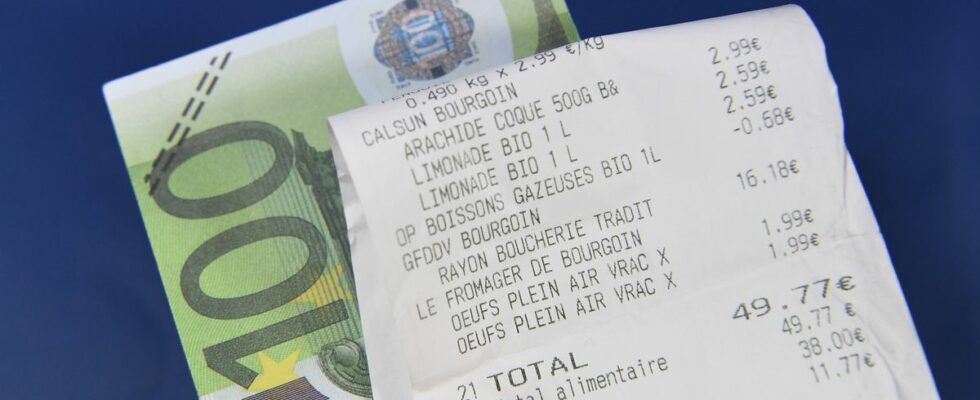Do not say goodbye immediately to the receipt at the end of your shopping. While its systematic printing was to end on January 1, 2023, a decree published Thursday in the Official Journal (JO) postponed the entry into force of the provision provided for by the “anti-waste” law to April 1, under a government decision. . The reason ? Inflation, according to the office of Olivia Grégoire, minister delegated in particular to small and medium-sized enterprises (SMEs) and trade.
“The context explains this decision,” said this source, referring to “feedback from distributors and consumer associations indicating that the till receipt remains for many French people an important element in checking the prices of purchased products, faced with the ‘inflation “. Another important element for traders, they “did not know the precise provisions of the terms and conditions for issuing the ticket”. Waiting until April ensures “a long enough time for them to adapt”, it was specified.
Reduce waste
The “anti-waste and circular economy” law, passed in 2020, provided for the ending of the printing of the till receipt at the end of a commercial transaction, unless explicitly requested by the customer. With the aim of reducing the production of waste. But since this law, high inflation, particularly on prices in supermarkets, has made it more frequent for consumers to consult the receipt. It allows them to “track their daily expenses”, as many consumer associations reminded us in April.
Twelve of the fifteen member associations of the joint advisory body that is the National Consumer Council, had then published a rare joint press release to demand that the printing of the receipt be “systematically offered” to the consumer.
“We are not going back” on the end of the systematic printing of the receipt, “the measure remains important to accelerate the ecological transition”, we answer the cabinet of Olivia Grégoire. According to this source, nearly 30 billion slips are printed every year, most of them ending up in the trash while their small size makes them “difficult to collect and recycle”. The fact of shifting the entry into force of the measure will make it possible to “communicate on the fact that the consumer will be able to obtain his receipt if he wishes” and if he requests it from the merchant. This will be important especially in case of doubt on the final bill, or in case of exchange of a gift for example.

